Granulated onion vs. onion powder – does it really make a difference?
Kitchen substitutions are common and often can be seamlessly made. They do not affect any of the flavor or textures of your signature dish.
But can you freely substitute them with each other? Can you save room on you spice rack and only purchase just one of these?
It can be tempting to do both—read on to learn more.
Table Of Contents
Granulated Onion vs. Onion Powder – What Are They?
So, what is granulated onion or onion powder? Let’s talk about it first.
What is Granulated Onion?
Granulated onion is a dehydrated form of onions that have been ground into small particles. It can be used as a seasoning or flavoring to add flavor to recipes and other food dishes.
The taste of granulated onion is more intense than dried minced onion or dried chopped onion, so you can use a smaller amount to get the same flavor. It is often confused with dehydrated onion flakes which are much thicker and have a different taste.
You can make your own granulated onions by chopping up fresh onions very finely and then drying them in an oven at low heat, but be sure to check on them regularly as they can dry out quickly.
What is Onion Powder?
Onion powder is dehydrated onion that has been ground into a powder form. This makes it an ideal seasoning for any dish, including beef jerky.
This type of seasoning was invented in the 1930s; at first, there were big chunks of dried onion in packages meant to flavor food, but these were later replaced by the powdered form.
There are a number of different ways to enjoy onion powder, from adding it to spaghetti sauce or stews to sprinkling it on french fries or other fried foods for extra flavor. In addition, those who enjoy making their own beef jerky can substitute this seasoning as a way to improve the taste of their homemade jerky.
Granulated Onion vs. Onion Powder – What’s the Difference?
Let’s take a quick look at the differences:
Granulated Onion | Onion Powder |
Particle size is bigger | Particle size is smaller |
Usually used to add texture to dishes | Not very common to be used to add texture |
Weaker onion flavor | Stronger onion flavor |
Made from fresh onion | Made from dehydrated onions |
Granulated onion and onion powder come from the same original product, of course: the onion.
However, these two distinct products differ in the size of the grind used to make the final product. Granulated onion is a coarser, larger onion product, while onion powder is a very fine dust.
Granulated onion is a very small, flaky onion product. Think of granulated onion as similar to kosher salt. It is used similarly to kosher salt—to impart a distinct onion flavor and slight texture into the dish without the heft and impact of chopped onion.
Onion powder is a finer product still, where the onion product is reduced to a powder, and no granules exist at all. Onion powder does not impart any texture to a dish and will incorporate itself completely. This makes it a great product to add deep flavoring to what you are cooking.
Can You Freely Swap Granulated Onion with Onion Powder?
You can swap granulated onion for onion powder, or vice versa, but only in the correct ratio and only in the appropriate kind of dishes.
These two onion products have distinct characteristics that can make or break your recipe. It is vital to know how to swap these ingredients correctly.
How to Substitute Granulated Onion vs. Onion Powder
The proper ratio to swap these two ingredients is twice as much granulated onion than onion powder.
- 1 teaspoon onion powder = 2 teaspoons granulated onion = 3 tablespoons fresh chopped onion
- 1 tablespoon onion powder = 1 medium fresh onion
- 1 tablespoon dried onion granules = ¼ cup fresh onion
Onion powder is very fine and concentrated, so you need half as much powder as granulated onion to make the same impact with its onion flavor.
For example, if your recipe calls for two teaspoons of onion powder, you would need to add four teaspoons of granulated onion to the same recipe to achieve the same amount of onion flavor.
Read on to see if your recipe is a good choice for twice the amount of onion granules.
Uses for Granulated Onion
It’s also important to consider the type of recipe you are making when thinking about making a substitution with granulated onion and onion powder.
It’s not only the flavor but also the texture that can make an essential difference in the key aspects of enjoyment of a particular dish.
Many recipes would not be able to handle the coarser nature of granulated onion. Making homemade salad dressing with granulated onion, for example, would result in an unpleasantly clumpy recipe.
Granulated onion is important for the rustic appearance and texture of meatballs. When you want to bite into a bit of onion with a spoonful of stew or want to add some hearty consistency to a homemade hamburger, granulated onion is a great choice—no onion tears required!
Uses for Onion Powder
Onion powder is ideal for when you want the onion flavor to disappear into the background.
Choose onion powder to maintain a velvety consistency with soups. Also, onion powder is an excellent option for a dish like meatloaf, which should be an overall soft texture.
Because onion is such an essential flavoring in many of what we recognize as good-tasting foods, people who don’t like to bite into an onion can feel banished to flavorless recipes.
However, onion powder’s fine texture disappears without a trace, leaving behind a great flavor.
Has My Granulated Onion or Onion Powder Expired?
There is no expiration date to consider when comparing granulated onion vs. onion powder.
Both ingredients will technically be safe indefinitely. However, they will lose their potency of flavor as time passes. It is best to use your granulated onion or onion powder within two years.
They can also become clumpy in humidity, so storing them in a cool, dry place is best.
If your granulated onion or onion powder has started to clump, simply empty the spice container, press the ingredient flat with the handle of a spoon, and return it to the spice container.
Other Onion Substitutes
If you are out of granulated onion and onion powder, there are other ingredients that deliver onion flavor and unique characteristics to your recipes.
Fresh Onion
Fresh onion is naturally a great ingredient to add authentic onion flavor to dishes.
It can have the pungent bite of raw onion or be cooked down and caramelized for a completely different flavor profile. Yellow, white, and red onions all have their own distinct flavors.
Scallions, shallots, and chives can be used in the same way—to add an onion flavor to finish a dish at the end. These slender shoots of green onion are a lovely garnish for the top of a baked potato or added to the top of a tossed salad.
Onion Paste
Onion paste is chopped, and blended onions are often stored frozen into an ice cube.
This ingredient is very convenient, has a fresh onion flavor, is an excellent addition to soups, and adds a robust onion flavor to homemade sauces.
Onion Salt
Onion salt is a similar concept to garlic salt – a blend of onion powder and granulated salt.
You can use onion salt interchangeably with onion powder, but be sure to keep an eye on the salt level of the rest of the recipe to ensure it doesn’t become oversalted.
Further Reading: 18 Substitutes for Onion Powder
Wrapping Up
It’s important to understand the subtle differences between granulated onion vs. onion powder.
While these products can be substituted for each other, you must know the correct ratio and kind of recipe in which you can do so to maintain the integrity of your signature dish.

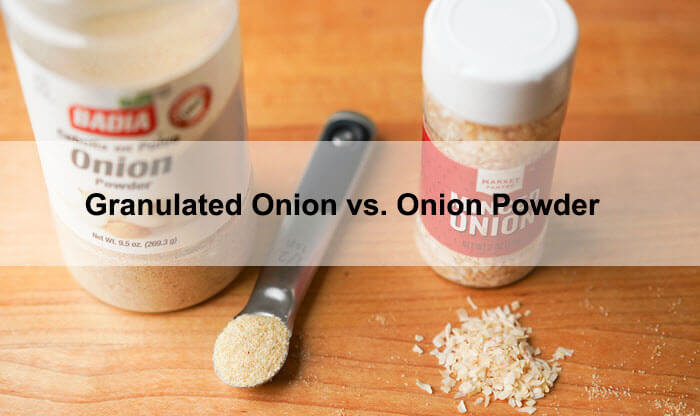
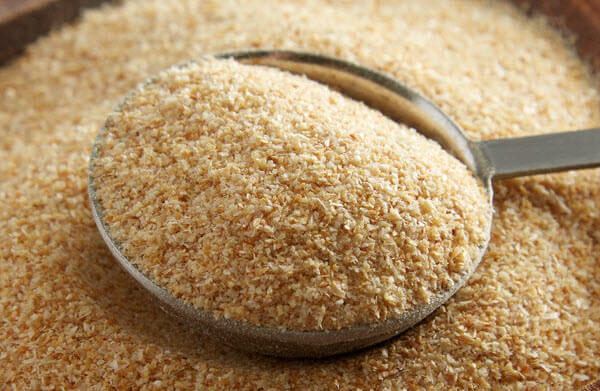
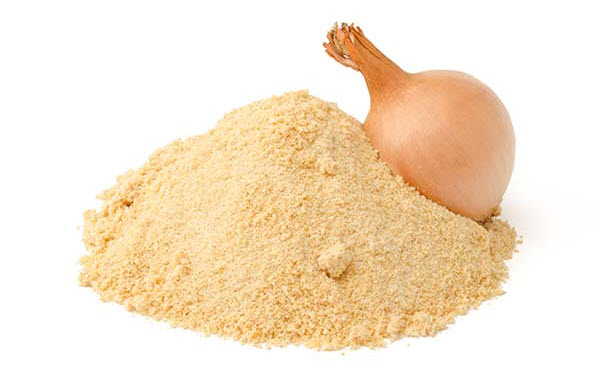
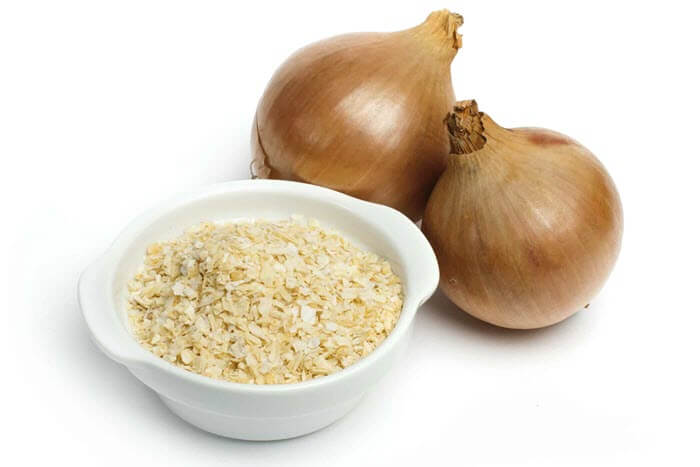
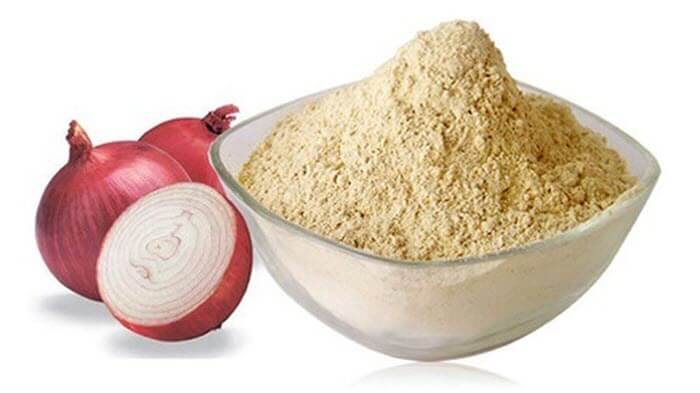
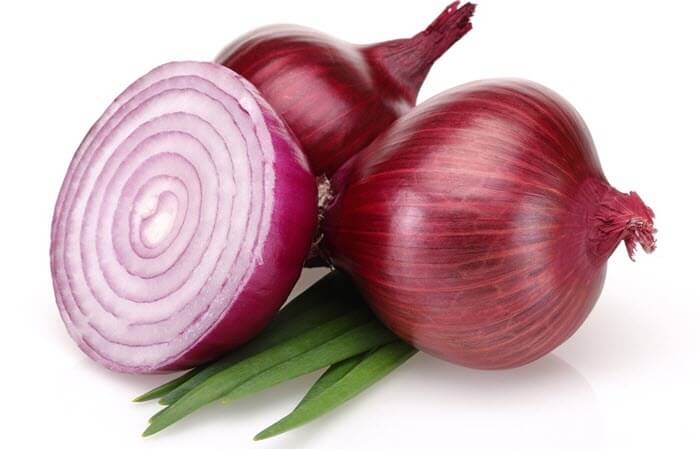
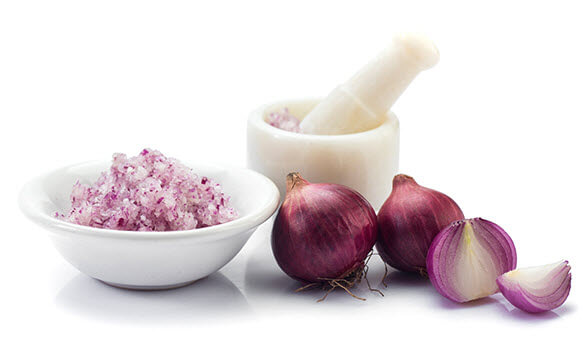
Thank you for this info. I just bought two pounds of granulated onion because the powder I wanted was $4 more, & I thought I could substitute the powder for the granules. I always sprinkle the powder in my salads. Since you mentioned granules not good for dressing, I am curious how taste will affect taste of salads. Wondering if I can somehow grind it finer, although taste might be the same even if texture changed. Guess since I bought such a large quantity of onion granules that I will be doing a lot of experimenting🥴.